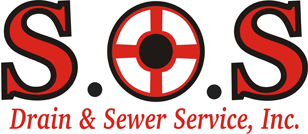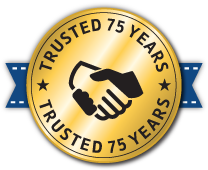Typically you don’t need to call a plumber to clean your kitchen or bathroom sink drain. Except in the most stubborn and tricky cases, you can easily clean that sink drain out yourself. However, between advertised chemical cleaners and dozens of old wives tales, homeowners are fed quite a bit of misinformation about what works. Certainly many of these options will work, but that doesn’t mean they are very good for your plumbing. So if you were to talk to a plumber, how would we recommend you clean your sink drain?
Lose the Chemical Drain Cleaners
The first thing a plumber would tell you about any sort of drain cleaning, sink or otherwise, is to safely dispose of your chemical drain cleaners someplace that isn’t down the drain. They can be effective on some kinds of clogs, but mostly they are incredibly hard on your plumbing and the chemicals can give off hazardous fumes as well as be very dangerous if they end up on your skin. It is best to just remove sink clogs the old fashion way.
Unclogging Your Sink the Right Way
When it comes to a clog in your kitchen or bathroom sink, the best way to remove it is similar to unclogging your bathtub or toilet. You can use hot water to try and dissolve the clog naturally, use a plunger to try and use pressure to flush the clog out, or for the heartiest clogs, you will want to break out the drain snake.
The severity of the clog depends on how much effort you want to put forth into it. For tougher clogs, like bathroom sink clogs that are often made of a difficult mixture of hair and toothpaste, you very well may have to snake through the clog to remove it completely. However, for less sturdy clogs, such as grease build up, a mixture of hot water and dish soap may be enough to dissolve through it.
Even if you remove the clogs with other means, however, you still may want to quickly run the snake down your drain. Snakes help remove debris, especially those that are sticking to the sides of the pipe. This can help the clog from coming back as quickly.
Preventing Sink Clogs
The best way to prevent a sink clog from coming back is to avoid placing objects down the drain that cause clogs. For bathroom sinks, you want to avoid excess undissolved toothpaste down the drain and you also want to do your best to avoid washing a lot of hair down there after a light trim or shaving.
For kitchen sinks, the best thing you can do other than have a drain catch to collect larger food particles is to keep grease as far as possible from that drain. It may go down a liquid, but it quickly turns into a solid in your pipes as it cools.
While it is best to keep anything other than liquids out of your drain, if you did accidentally get a little grease down there or flushed a big clump of toothpaste without thinking, you can help prevent clogs by letting the hot water run for a minute. This will help dissolve and flush things so they don’t end up sitting in your drains and causing problems.
Need Help? In A Mess? Call SOS!
For most clogs, the standard homeowner is equipped to handle them. However, if you have a real problem clog that will just not come loose in you Minneapolis home, then contact us today. SOS Drain & Sewer is ready to help you tackle the tough jobs and get any drain flowing smoothly.



